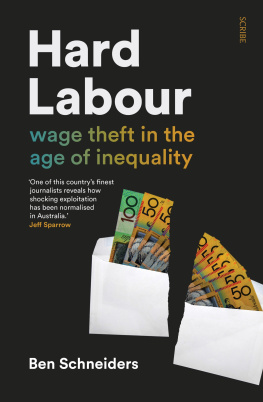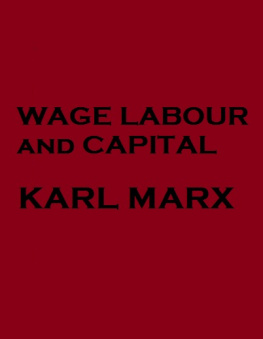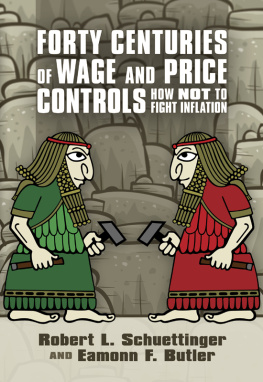First published 1998 by Ashgate Publishing
Reissued 2018 by Routledge
2 Park Square, Milton Park, Abingdon, Oxon, OX14 4RN
52 Vanderbilt Avenue, New York, NY 10017
Routledge is an imprint of the Taylor & Francis Group, an informa business
Copyright Sunil Kanwar 1998
All rights reserved. No part of this book may be reprinted or reproduced or utilised in any form or by any electronic, mechanical, or other means, now known or hereafter invented, including photocopying and recording, or in any information storage or retrieval system, without permission in writing from the publishers.
Notice:
Product or corporate names may be trademarks or registered trademarks, and are used only for identification and explanation without intent to infringe.
Publishers Note
The publisher has gone to great lengths to ensure the quality of this reprint but points out that some imperfections in the original copies may be apparent.
Disclaimer
The publisher has made every effort to trace copyright holders and welcomes correspondence from those they have been unable to contact.
A Library of Congress record exists under LC control number: 9871402
ISBN 13: 978-1-138-35973-4 (hbk)
ISBN 13: 978-0-429-43246-0 (ebk)
I became interested in rural labour issues during the course of my doctorate at the University of California at Berkeley. The University provided a most invigorating ethos for scholarly work. At the core of this ethos were some of the best faculty one could hope to come across, indeed associate with, anywhere in the world. Not very long after obtaining my doctorate I moved to the Delhi School of Economics. Although things were rather different here, it nevertheless had the reputation of being amongst the best institutions in this part of the world. In this conducive atmosphere I continued exploring issues pertaining to rural labour. This book is the culmination of the last few years of my work in this area.
My initial interest in labour issues was kindled by Pranab Bardhan, George Akerlof and the course on risk and uncertainty that David Zilberman offered at Berkeley. This interest was partially triggered by the widespread concern in the economic development literature about the need for empirical validation of theories and stylized facts which find their way into theoretical models. Especially since it isn't as if there is consensus about the relevance of competing theories and stylization of 'reality'. My reading of the literature revealed this to be particularly true of rural labour-related issues. I further discovered that although a fair bit of theoretical research in this area accounted for the ubiquitous presence of risk in agriculture, the corresponding record in empirical work was very thin if not almost nonexistent. This appeared to point the way for useful research. Jim Chalfant, my principal doctoral supervisor, was instrumental in helping me develop my nascent ideas. His decisiveness and encouraging demeanour are the two qualities that stand out in my mind. I would like to parenthetically add, that in addition to scholarship, observing him (as well as Jeff Perloff and George Akerlof) contributed immensely to my development as an instructor. But over the long run, the one individual who has been the most supportive and responsive is Peter Berck. His good humour and pragmatism were always a welcome foil to the pressures of work. These qualities were amply reflected in his exhortation that I '... should learn to write like the Brooklyn Gangster'. I hope I haven't failed him, at least in spirit. Pranab Bardhan with his sagacity and a myriad interests was always a source of inspiration.
The availability of a 'good quality' data set is central to rigorous and reliable empirical research. For if there are too many question marks on the quality of the data set, and/or the data set is silent on many of the very aspects that you need to consider, no amount of clever theoretical modelling will compensate. Further, the usefulness of the conclusions emanating from enquiries using such data sets would be correspondingly limited. Of course, ultimately no data set is 'complete', and my observations hold only in a relative sense. I was introduced to a rather comprehensive and meticulously compiled data set collected by the International Crops Research Institute for the Semi-Arid Tropics (ICRISAT), by Shankar Subramaniam. Shankar was also to prove a most effective troubleshooter, subsequently, on many occasions. I spent a month at ICRISAT (Hyderabad, India) in the summer of 1990, and had the occasion to visit one of the mandate villages myself. Tom Walker, the then principal economist at ICRISAT, graciously provided me the data tapes. (The Government of India which has perfected the art of sitting tight on data collected with public money, presumably in the public interest, could learn something from this). I also spent numerous fruitful hours in discussion with him. His first hand knowledge of the Indian rural scene was impressive, given his American background. Of course, I do not speak for him or his organisation.
I benefited considerably from seminars at Tilburg University, Institute of Economic Growth, Indian Statistical Institute (Delhi), Vanderbilt University and the Delhi School of Economics. The discussions usually helped, and often forced, me to clarify the issues before me, and hone my arguments. Even outside the seminar halls, I was fortunate to benefit from various individuals by way of discussion or advice at various stages of my research. A partial list of such individuals would include Alain de Janvry, Larry Karp, Betty Sadoulet, Joe Callahan, James Foster, Clive Bell, Kathryn Anderson, K.L. Krishna, Suresh Tendulkar, Santosh Panda, Bharat Ramaswamy, Malashri Lal, and Shalini Shah. Bina Agarwal, Kanchan Chopra, and Peter Berck were kind enough to provide me with comments on various chapters. K. Sundaram and Ranen Das also went through some of the material included here and obliged me with their criticisms. I would also like to mention a special word of gratitude for Kaushik Basu who was never grudging with his time or encouraging words.
Another crucial ingredient in such an enterprise is infrastructural support. My experience in the different institutions that I have been associated with over the course of this work has been, to put it mildly, somewhat uneven. In the U.S. the excellent logistical support made my task that much easier. The efficiency of Gail, Sherry, Bessie, Louise and Mouzon Siddiqui, and their ever-smiling faces made even mundane dealings pleasurable. The knowledgable Grace was an asset in the library. The patience and promptness with which Jim Bradley, Sam Scalise and Gary Casterline helped me was remarkable. In the Delhi School of Economics the infrastructure has become quite tolerable in the last couple of years. I appreciate the willing help rendered by Kamal Sharma, Nazma Sultana, Mr. Ramachandran, Muthu and Vinayan, that marked a departure from the status quo ante.
Finally, my family was an important factor in helping me accomplish this goal, especially my little son Susheem who I would eagerly look forward to meeting at the end of a hard day's labour.









